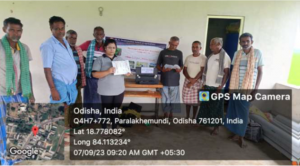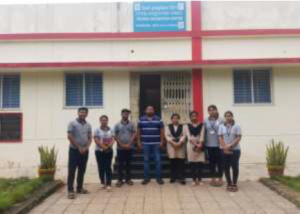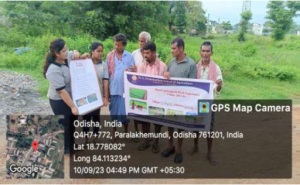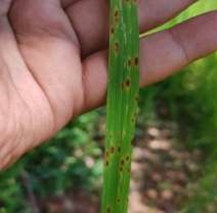Bridging Communities and Knowledge: Centurion University's Initiative to Share Laboratory Facilities with Local Farmers
Centurion University of Technology and Management, driven by its dedication to community development and sustainable agriculture, has undertaken a transformative initiative by granting local farmers access to its advanced laboratory facilities. This novel effort signifies a significant confluence between academics and agriculture, promoting a mutually beneficial connection that positively impacts both the university and the farming community, thereby making a valuable contribution to society at large.
Empowering Local Farmers Through Access to University Labs
- Research and experimenting: Local farmers are afforded the chance to engage in research and experimenting inside the confines of academic laboratories. The aforementioned activities encompass the examination of soil composition, the evaluation of crop performance, and the investigation of viable approaches to sustainable agriculture. Throughout the year 2022, a consistent stream of farmers, approximately 112 in total, availed themselves of the university’s soil testing facility. This valuable service allows these farmers to assess the nutritional condition of their soil, enabling them to make informed decisions about the appropriate supplementation of manure and other soil nutrients. This proactive approach aids in optimizing crop yields and enhancing agricultural practices, ultimately leading to increased agricultural productivity and sustainability.



2. Disease and Pest Management: Enhanced disease and pest management tactics can be achieved through collaborative endeavors between farmers and academic professionals within controlled laboratory environments. Farmers have the ability to mitigate the reliance on chemical interventions by engaging in the identification and study of crop diseases and pests, thereby facilitating the development of sustainable remedies.In the year 2022, the University organized an awareness campaign addressing various crop diseases, with active participation from 189 farmers across different clusters. For instance, a specific session on “Demonstration of rice blast disease” garnered attendance from 17 farmers. This proactive initiative by the University plays a pivotal role in equipping farmers with the knowledge and skills to detect crop diseases at their early stages. Consequently, it empowers them to implement timely and effective corrective measures, contributing to improved crop health and agricultural sustainability.

